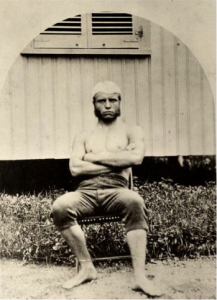While I was reading both of these two articles, the sense of nationalism and love for one’s country is what stood out to me the most. The ESPN article “While the World Watched” talked about the Dirty Wars, now more commonly referred to as state terrorism by the Argentinian government. During the games during the 1978 World Cup, there were a lot of abuses of power and breaches of human rights committed by the government. This government was run by a military dictatorship that took power of the government. This government used nationalism to intimidate and run the country and soccer was a way for them to accomplish that. During one match when Argentina scored “Guards pressured the prisoners to scream “Gooooooal!” during the game. No one dared turn away, or close his eyes. Not cheering loud enough could get a prisoner listed for the next transfer.”. This was their way of putting Argentina and its citizens in line under the guise of being unified under one flag. On the other hand the article “Defenders of National Honor” talks about Cuba before the revolution and how sports were a source of pride for Cuba, especially when they would beat the United States in head-to-head matchups. Both of these articles to me about national identity and nationalism and how sports serve as a way to show “supremacy” over other countries. In Argentina, the military used sports to unite a country under their ideals to take eyes away from the crimes they were committing, while in Cuba it was a way to create a national identity. This branches off of these countries as well, as the United States uses Olympic basketball as a way to show its dominance in a sport that is becoming more and more global. For these Latin American countries, it is a way for them to separate themselves from each other and the rest of the globe. For Cuba, it served as a way for them to separate from the United States “U.S. imperialism and hegemonic economic and cultural influence created a clear power imbalance in the early Cuban Republic, but sporting events against U.S. teams, including baseball and American football games, provided opportunities for “emulation” as a means of resistance and as a rallying point for
national identity”
